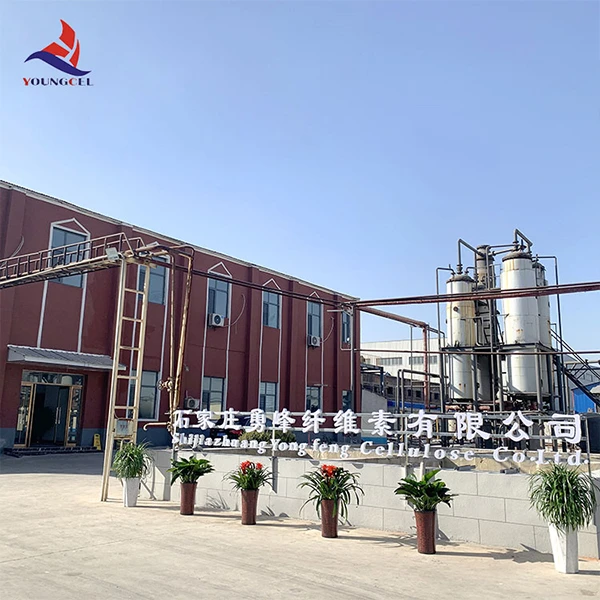Hydroxyethyl Methyl Cellulose for Liquid Soaps An Overview
Hydroxyethyl methyl cellulose (HEMC) has emerged as a vital ingredient in the formulation of liquid soaps, offering numerous benefits due to its unique properties. As a type of cellulose ether, HEMC is derived from natural cellulose which is modified to enhance its performance in various applications, particularly in personal care products. In this article, we will explore the significance of HEMC in liquid soap formulations, its advantages, and considerations for its use.
What is Hydroxyethyl Methyl Cellulose?
HEMC is a non-ionic, water-soluble polymer that is characterized by its cellulose backbone which has been modified to include hydroxyethyl and methyl groups. This modification not only increases its solubility in water but also imparts distinct rheological properties that are advantageous in liquid applications. HEMC is known for its thickening, gelling, and emulsifying capabilities, making it an essential ingredient in various cosmetic and personal care formulations.
Benefits of Using HEMC in Liquid Soaps
1. Thickening Agent One of the primary benefits of HEMC is its ability to act as a thickening agent. In liquid soap formulations, it helps achieve the desired viscosity, giving the product a rich, luxurious texture that enhances customer experience. A well-thickened liquid soap is generally perceived as more premium and effective by consumers.
2. Stabilization HEMC acts to stabilize emulsions and dispersions within liquid soaps. This stability prevents the separation of components, ensuring a uniform product throughout its shelf life. This is particularly important for liquid soaps that contain various surfactants, oils, and botanical extracts.
3. Improved Foam Quality HEMC can enhance the foam qualities of liquid soaps. Quality foam is essential in liquid soaps as it improves the cleansing experience. HEMC helps in stabilizing the foam, allowing it to last longer during use, thus providing an effective lather that modern consumers expect.
hydroxyethyl methyl cellulose for liquid soaps

4. Skin Benefits HEMC has moisturizing properties, which can be beneficial in liquid soap formulations. Given its hydrophilic nature, it helps attract moisture to the skin during use, contributing to a softer and more hydrated skin feel after washing. This is increasingly important as consumers are looking for skin-friendly products.
5. Versatility and Compatibility Another advantage of HEMC is its compatibility with a broad range of ingredients including surfactants, oils, fragrances, and preservatives. This versatility allows formulators to create customized recipes that meet the specific needs of different market segments, from luxury brands to eco-friendly products.
Considerations for Use
While HEMC offers numerous advantages, formulators should also consider a few factors when incorporating it into liquid soap formulations. The concentration of HEMC used can significantly affect the viscosity and texture of the final product. It is essential to perform small-scale trials to determine the optimal level of HEMC that achieves the desired characteristics.
Additionally, the processing conditions can influence the performance of HEMC. For instance, it is crucial to properly hydrate HEMC before incorporating it into the formulation to avoid the formation of lumps. This usually involves dispersing HEMC in cold water before heating or blending with other ingredients.
Finally, while HEMC is generally recognized as safe, formulators should be mindful of regulatory requirements in different regions. Conducting stability and safety testing is crucial to ensure compliance with industry standards and consumer safety.
Conclusion
Hydroxyethyl methyl cellulose is an invaluable ingredient in the formulation of liquid soaps, bringing together thickening, stabilizing, and moisturizing benefits. Its ability to enhance the overall user experience through improved texture and foam quality makes it a popular choice among formulators in the personal care industry. As consumer preferences continue to evolve toward products that offer both luxury and functionality, the role of HEMC in liquid soaps will likely grow, paving the way for innovative formulations that meet the demands of today’s discerning consumers.
-
Rdp Powder: Key Considerations for Wholesalers in the Building Materials IndustryNewsJul.08,2025
-
Key Considerations for Wholesalers: Navigating the World of Hpmc - Based ProductsNewsJul.08,2025
-
Hpmc Detergent: Key Considerations for WholesalersNewsJul.08,2025
-
Key Considerations for Wholesalers: China Hpmc For Tile Adhesive, Coating Additives, Concrete Additives, and MoreNewsJul.08,2025
-
Crucial Considerations for Wholesalers: Navigating the World of Construction MaterialsNewsJul.08,2025
-
Key Considerations for Wholesalers Sourcing Additive For Cement, Additive For Concrete, Additive For Putty from Additive Manufacturer Shijiazhuang Gaocheng District Yongfeng Cellulose Co., Ltd.NewsJul.08,2025




